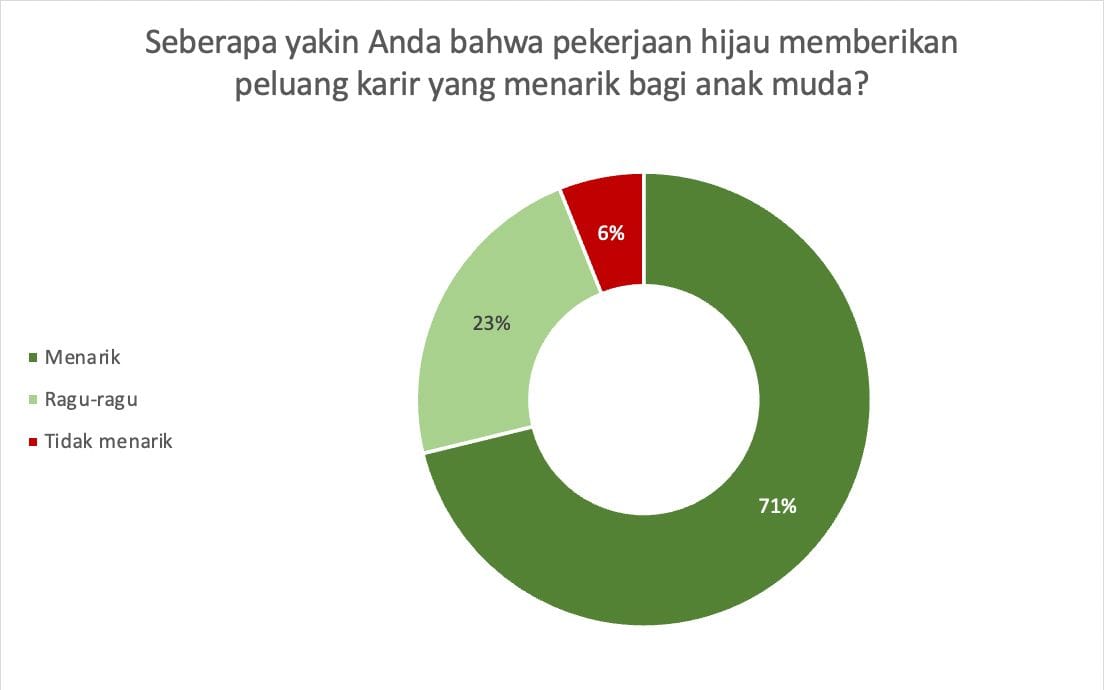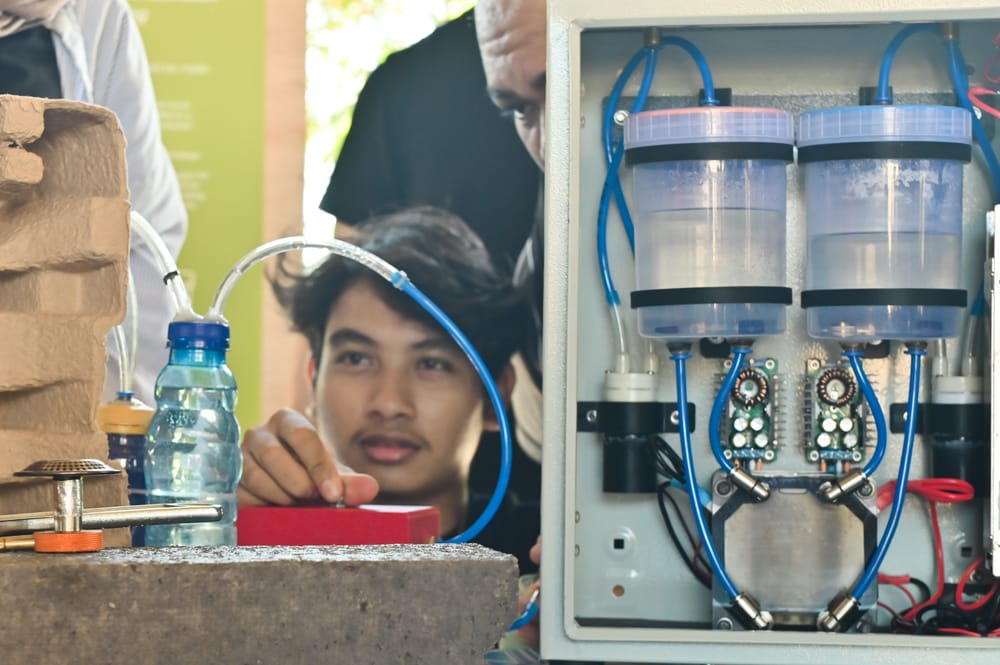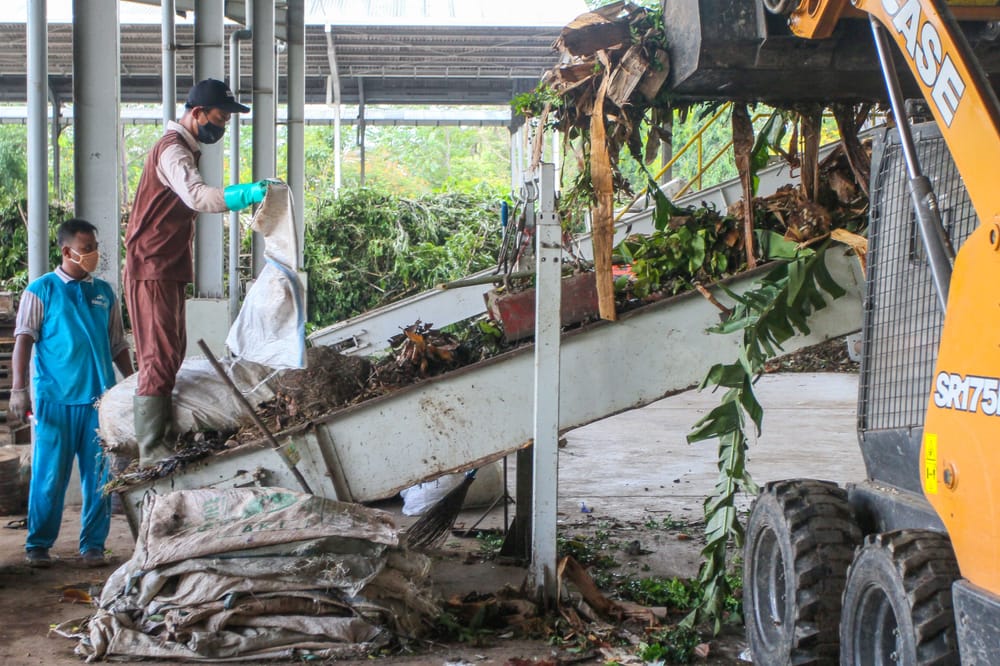Indonesia has the potential to create 72 milliongreen jobs in the next four years, along with the development of new and renewable energy, according to a report by the Ministry of National Planning and Development (KemenPPN/Bappenas).
This is a hope amidst the increasing wave of layoffs due to global economic uncertainty.
Based on the Indonesia Green Jobs Development Roadmap for Indonesia's Green Jobs Conference (IGJC) 2025: Turning Vision Into Action launched by Bappenas last April, the number of potential green jobs is projected to reach 56 million by 2025 and will increase to 72 million by 2029.
The roadmap will be a national guide to develop policies, human resource investments, and programs that encourage green economy transformation.
Secretary General of the Ministry of Manpower, Anwar Sanusi, said the future of green jobs is very prospective.
"Apart from globally receiving high attention for sustainable development, sectors such as organic agriculture, environmentally friendly land management, to smart farming have great potential to absorb labor," Anwar told SUAR, Jakarta, Tuesday (07/22/2025).
Furthermore, he added, the government has developed a green jobs roadmap as part of the National Long-Term Development Plan (RPJPN) and the National Medium-Term Development Plan (RPJMN). Several government-owned training centers have also started to open courses on green business and green technology.
Bappenas itself predicts that by 2025, the number of green workers in Indonesia is expected to reach 4 million people or 2.7 percent of the total workforce, and could increase to more than 5.3 million people or 3.14 percent by 2029, under a high economic growth scenario.
The term green jobs refers to a variety of jobs that support sustainability, reduce negative impacts on the environment and promote green economic growth.
The economic slowdown and digital transformation have hit a number of labor-intensive sectors. Data from the Ministry of Manpower recorded that, as of October 1, 2024, 52,993 workers were laid off, with the manufacturing sector being the largest contributor: 24,013 workers lost their jobs.
However, Anwar is not blind to challenges ranging from human resources, to the concept of green jobs that many people still do not understand. "We have to make sure there is a business chain that really supports green workers to earn a decent living," he said.
Wicaksono Gitawan, Policy Strategist and Project Manager at CERAH Indonesia, an environmental NGO in Jakarta, explains that the essence of green jobs lies in two main pillars: preserving the environment and ensuring employability.
"Green jobs are not just about 'green'. It must have two sides: contributing to environmental preservation and remaining a decent job for its workers," said Wicaksono when interviewed by SUAR by telephone on Tuesday (22/07).
Green jobs are not limited to the renewable energy sector. Opportunities can be found in many fields, from agriculture, manufacturing, construction, science, to law and creative industries such as fashion.
Great but Limited Potential
In line with Bappenas, Wicaksono from CERAH Foundation also revealed that the biggest potential for green jobs is in the renewable energy sector: solar power, micro-hydro, and biomass.
According to him, although there are potentially 72 million types of occupations in this sector that have been identified as green jobs. However, this potential is still constrained by skill gaps, policy gaps, and funding gaps.
"Companies engaged in green jobs often have difficulty attracting workers who have the technical skills needed. Many engineering or renewable energy graduates choose to work abroad due to competitive offers," said Wicaksono.
The skill gap arises due to the limited number of workers who have technical expertise in renewable energy or other green jobs. In many universities, relevant majors and curricula are still limited, especially at the SMK level or vocational education in the regions.
"Our survey shows that only 45% of students really understand what green jobs are. Among the general public, understanding is even lower," he said.
However, the results of a survey conducted by Yayasan Indonesia CERAH together with Suara Mahasiswa UI show that the majority of young people (71 percent) of respondents see this sector as a promising career opportunity, as well as a means to have a positive impact on the environment and society. This figure is in line with 98 percent of respondents who think that the ideal career is not just about income, but also a contribution to sustainability.

This phenomenon is not unique to Indonesia. Plan International's 2022 research shows that the majority of young people in Asia, Europe and the United States also aspire to have environmentally friendly jobs in the next decade. The Good Energy survey in the UK also found that more and more young people are placing sustainability as a key consideration in choosing a job.
For the country, this opportunity is also not trivial. The development of green jobs has multiple benefits: in addition to reducing unemployment, it also helps reduce carbon emissions, minimize pollution waste, and restore ecosystems.
"The development of green jobs is beneficial because it addresses two major issues at once: labor issues and environmental issues," said Wicaksono.
Meanwhile, the policy gap occurs because roadmaps and supporting regulations, such as power wheeling or direct purchase agreements (DPAs), have not been fully implemented. This makes the development of renewable energy power plants, especially large-scale, difficult to enter the PLN network, which is still dominated by fossil electricity.
Wicak cited the example of the centralized solar power plant in Way Haru, Lampung, which was initially built in 2016 to provide electricity to the village, but later stalled because there was no transfer of knowledge and skills to the local community.
"Without skill sharing, the technology that is built is ultimately unsustainable," he said.
Funding gaps are also a significant barrier. Investment into large-scale renewable energy projects is often hampered by the constraints of electricity oversupply in Java-Bali and limited grid infrastructure. As a result, investment tends to flow to small-scale projects that have limited labor absorption.
Optimism and Caution
Bobby Gafur from the Manpower Division of the Indonesian Employers Association (APINDO) said that the potential of green jobs is seen as a strategic opportunity to strengthen Indonesia's competitiveness.
"Green jobs have huge potential in the future, because Indonesia is rich in natural resources, human resources, and carbon resources," he said.
However, he emphasized the importance of formulating the transformation of the green industry in more detail, so that the needs of the green workforce can be properly prepared, and the ecosystem is solidly established.
For the small and medium enterprise (SME) sector, green jobs opportunities also exist, such as recycling, waste management, and organic farming, although they still face challenges such as capital, technology, and market access.
"In my opinion, among industries that have moved towards green industry, the relevant APINDO members are actually quite aware of the importance of this transition. Automatically, the need for green human resources also arises as a consequence. Sectors such as green financing, green manufacturing, and green energy have become leading sectors that open up many green job opportunities," he said.
Some examples of rapidly developing policies abroad in support of green jobs include
- In Vietnam, for example, the policy of direct power purchase agreement (DPPA) policy allows private companies to buy renewable energy electricity directly from producers through the national grid. This policy triggered an investment boom and job creation in the renewable energy sector.
- In South Africa, organizations such as Harambe Youth Employment Accelerator connect young job seekers with the green industry. This model is proven to accelerate reskilling and placement of workers into sustainable sectors.
Anwar added that the potential for green jobs in Indonesia is huge. But to make it the new motor of the economy, a comprehensive strategy is needed: strengthening vocational education, opening incentives for the private sector, improving regulations that hinder investment, and public campaigns that make the concept of green jobs better understood.
"We hope that Indonesia can become a high-income country, with a stronger and more sustainable economic structure," he said.






